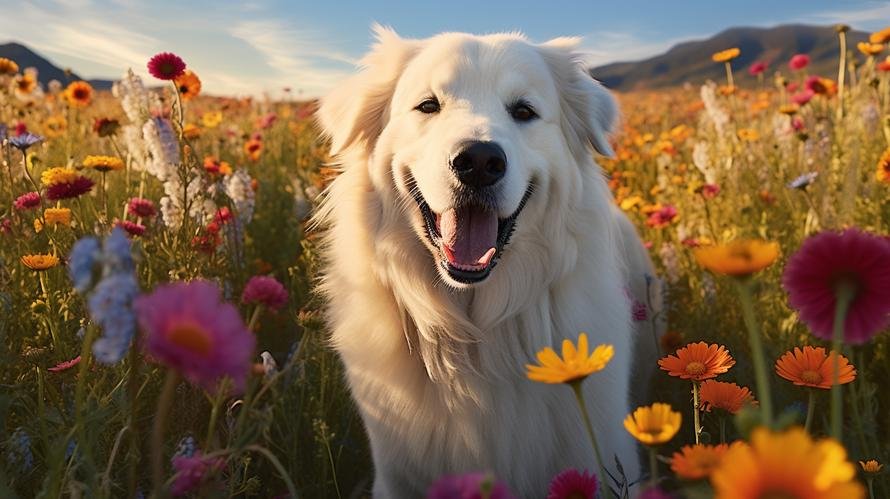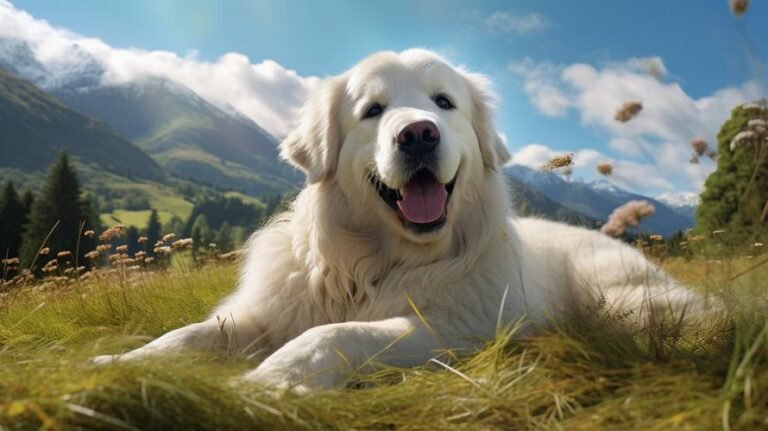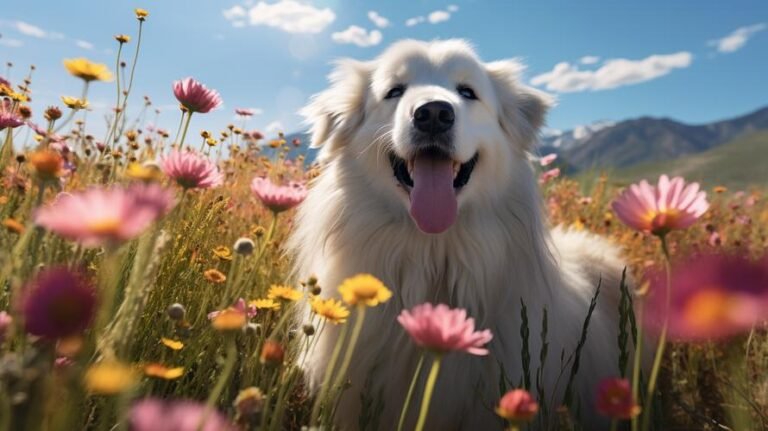Did you know that the Great Pyrenees, also known as the Pyrenean Mountain Dog, was once used to guard sheep on the misty, semi-arctic terrain of the Pyrenees Mountains between France and Spain? Today, this same breed, known for its striking white coat and amiable nature, is welcomed into families around the world not as a livestock guardian but as a loving companion.
Now, you might be asking, “Is the Great Pyrenees a high maintenance dog?” To help you better understand this breed’s needs and requirements, let’s dive deep into understanding their distinctive characteristics, grooming needs, activity level, and temperament.
Originating from the Pyrenees Mountains, the Great Pyrenees is genetically adapted to cold weather conditions. Thus, a hot climate might make these dogs uncomfortable. They are built for endurance rather than speed, possessing a steady, thoughtful personality which makes them excellent decision-makers.
GROOMING AND CARE
On first glance, those wondering “is the Great Pyrenees a high maintenance dog?” might be quick to say yes due to their extensive, luxurious white double coat. The outer coat is long, coarse, and flat, while the undercoat is dense and luxuriously wooly.
You might wonder, “This seems like a lot of hair. Do they shed a lot?” The short answer is, yes. The Great Pyrenees, like other breeds with double coats, is known to “blow” their coats – especially in warmer weather. Blowing coat refers to the process where the dog sheds its undercoat in large amounts.
Daily brushing can help manage their shedding and prevent matting. For the grooming tools, you can’t go wrong with a slicker brush and a metal comb. Bathing is generally needed only every 2-3 months or when your dog gets significantly dirty, as too much frequent bathing might strip their skin and coat of essential oils.
This might seem like a lot of work, but in reality, about 15-20 minutes a day devoted to brushing can keep their coat in good shape.
EXERCISE AND ACTIVITY LEVEL
The Great Pyrenees were bred to be hard-working dogs. They enjoy staying active throughout the day, patrolling their territory. While they are not as hyperactive as some other breeds, they do require a moderate amount of exercise to stay healthy and happy. A couple of 30-minute walks, along with some playtime each day, should be sufficient for a Great Pyr.
However, without regular mental and physical stimulation, they can get bored and resort to unwanted behaviors like excessive barking or chewing. It’s also worth noting that despite their size, they are quite agile and are known to hop over fences. Therefore, a securely fenced yard is a must.
TRAINING AND TEMPERAMENT
Is the Great Pyrenees a high maintenance dog when it comes to training? Not necessarily. Despite their independent temperaments, with consistent, gentle, reward-based training techniques, they can learn quickly. Their intelligence coupled with a desire to please makes them responsive to positive reinforcement.
However, Great Pyrenees are naturally protective, a trait that remains from their days guarding livestock. Training should aim to balance this protective instinct with social interaction to ensure they don’t become overly guarded or aggressive.
IN CONCLUSION
The Great Pyrenees is a delightful combination of a noble, patient, and devoted dog. Yes, they come with their unique traits and demands which might give the impression of being high maintenance. However, with the right approach to grooming, mental stimulation, and training, their maintenance can seamlessly fit into your daily routine.
What makes the Great Pyrenees truly special is their deep desire to protect their families – a trait that makes them one of the most loyal companions you can have. So, while they might require some effort in maintenance, the love and protection they offer make every bit of it worth it. Remember, high maintenance doesn’t always mean trouble—it sometimes just signifies a life rich with fluffy cuddles, unconditional love, and a companionship like no other.



